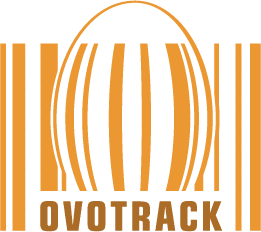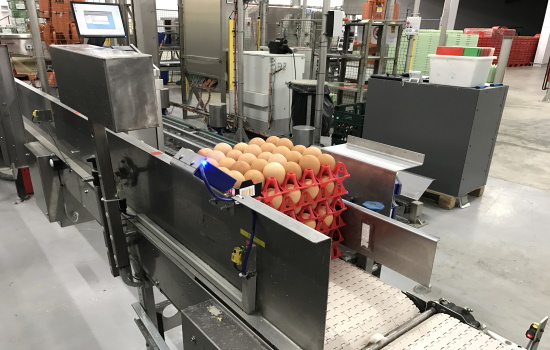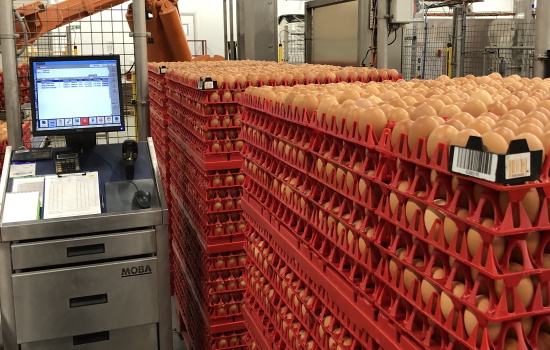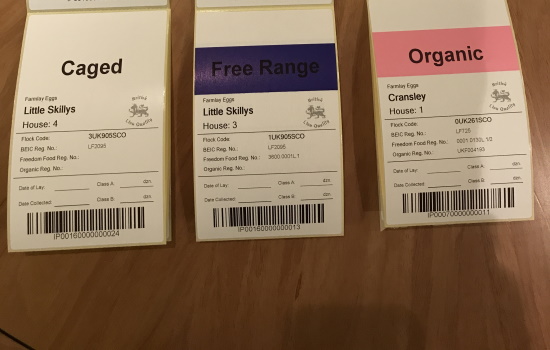Case study: Farmlay Eggs Scotland - automatic batch changes save costs and improve the process
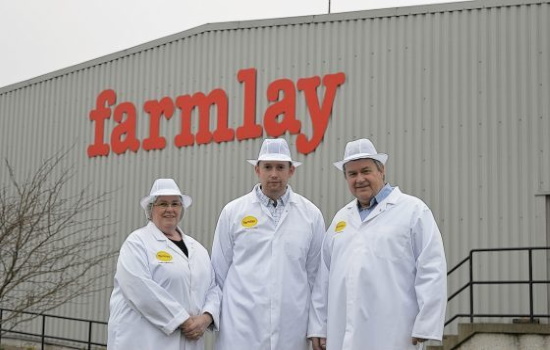
Increasing the number of eggs graded per week whilst remaining staffing levels unchanged is one of the critical success factors to survive in the competitive egg market for Farmlay Eggs in Scotland, ran by the Chapman family. That is why the Chapman family, owners of Farmlay Eggs, continue to invest in automation on the grading floor of their egg packing center in Strichen. On the loading side of the grader, Farmlay implemented a fully automated system consisting of two robots that unstacks pallets with ungraded eggs, puts the empty trays and pallets in a washer and stacks the washed trays and pallets after washing - all automatically. The one thing that still required manual operation in that system was to identify the exact moment of batch change. And that is where Ovotrack entered the workfloor at Farmlay eggs.
"it saves us one worker at the loader and 80% of the workload we previously had for sorting out grading results and making farm bills"
"We already knew Job long before as we bought one of his grading machines when he was still grading eggs himself." Says Robert Chapman. "And his egg grading background is helpful. Job and his team speak our language and understand our challenges. Our initial interest was in the Ovotrack ECI solution so that we could automate batch changes on our grading machine. But by now the Ovotrack solution is impacting the data side of the complete ungraded eggs and packaging process in our operation." Robert's son Iain describes the process in more detail: "we preprint farm labels with a unique barcode for each of ouw flock as well as for all contracted flocks. Each pallet of ungraded eggs that enters our warehouse has a farm label on it and during receive each label is scanned into the database. Our inventory increases at that point. We also label every pallet of packaging that enters our warehouse. Before using eggs or packaging on the work floor the labels are scanned again and inventory is adjusted accordingly. For the eggs, the information about the flock, the quantity of eggs and the date of lay is sent to the Moba Omnia MMI automatically. We treat each pallet as a separate batch so we put an ECI tag on every pallet. The ECI scanner on the loader switches the batch automatically and the grading results for each pallet are then sent from the grader back into Ovotrack. Earlier this year we have implemented our latest add-on with Ovotrack Egg Balancing and Ovotrack Task Scheduler software which enables us to email all grading results to our farmers with a minimum of manual handling".
When asked about the savings and benefits of the system, Robert Chapman was quite clear: "it saves us one worker at the loader and 80% of the workload we previously had for sorting out grading results and making farm bills. On top of that we have a real-time accurate inventory of ungraded eggs. And we no longer loose dates because we are now grading each pallet as a separate batch at its own date of lay. We're happy with it".
Has this case study piqued your interest in finding out what we can do for you? Please don’t hesitate to get in touch! Call +31(0)343 453 416 or email info@ovotrack.nl.

